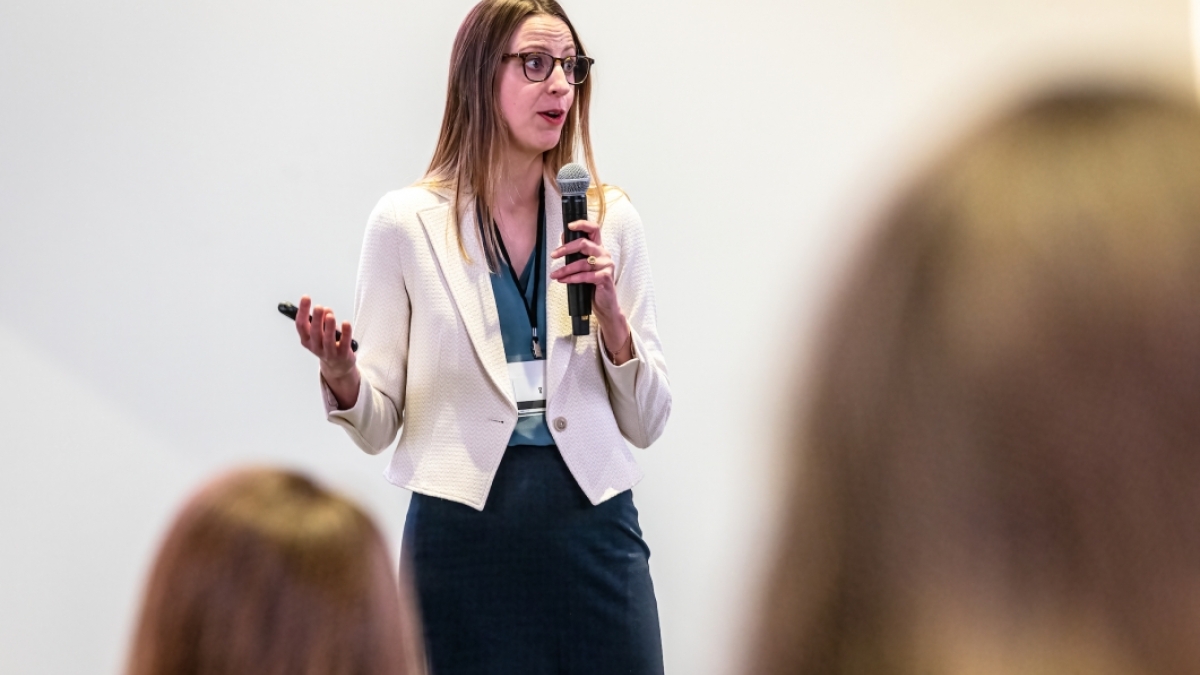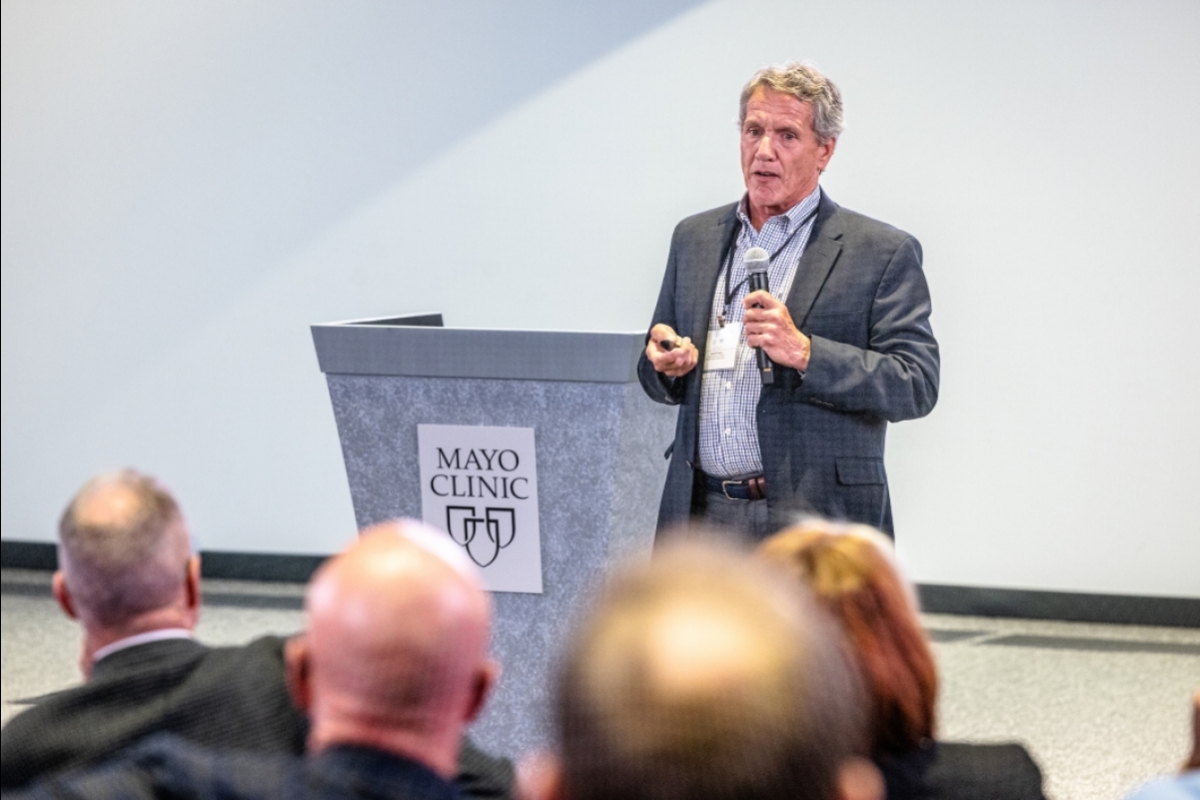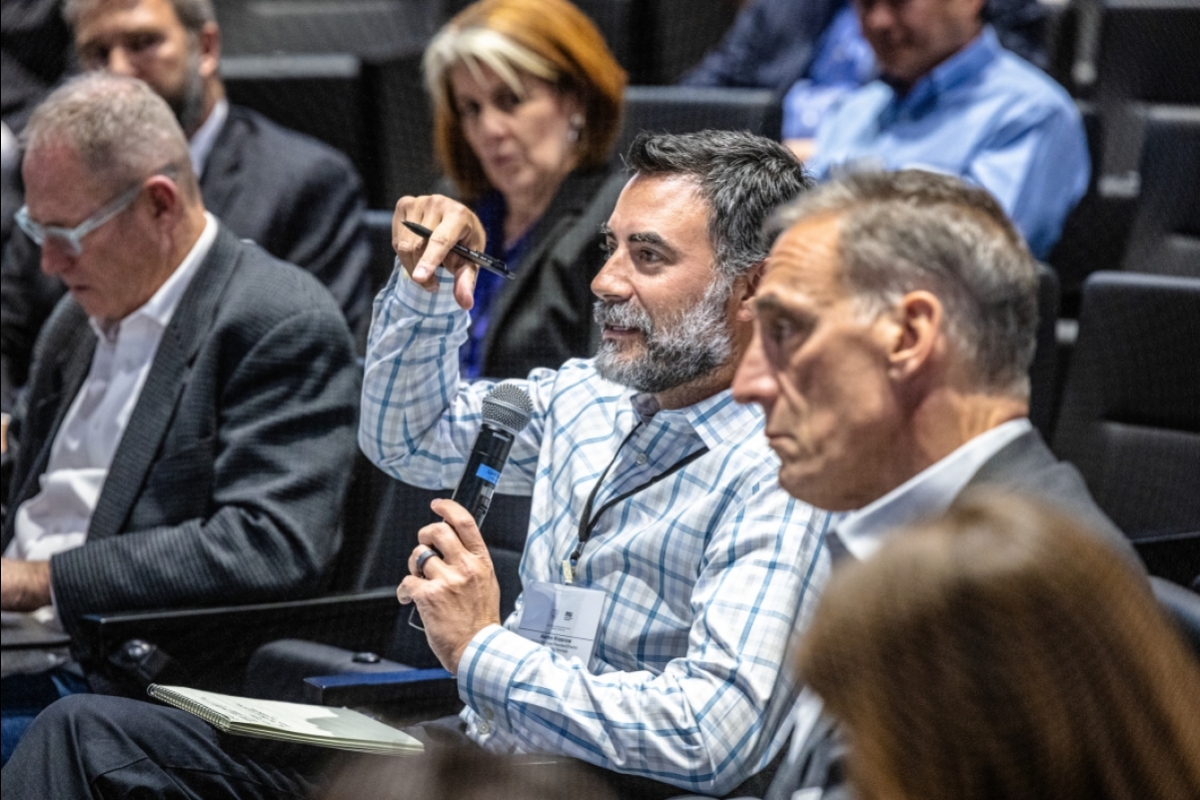A “Shark Tank” style pitch event Thursday hosted by Arizona State University and Mayo Clinic gave a look into the future of medicine.
Eight companies from around the world gave five-minute pitches on products, platforms, devices and software that address gaps in health care to a panel of industry executives.
The winner was a company called Medecipher Solutions, which offers software for health care providers. Misallocating resources can burn out staff and reduce the quality of care for patients. The software optimizes staffing using predictive analytics and forecasts capacity and eliminates patient flow bottlenecks.
“Our software is really about planning the care team, putting in place care models that best predict the patient’s actual needs and aligns the available human capital resources of an organization to best serve the needs of that population,” CEO Stephanie Gravenor said.
Gravenor will be a panelist at a Phoenix Business Journal MedTech Accelerator event on May 18. Her company will also be featured in related articles by the outlet.
“It’s great,” Gravenor said of her win. “It’s such an honor. These companies are amazing, all coming from all across the world here to work and collaborate with Mayo Clinic and ASU in terms of innovation. To be among them has been an honor.”
Among the other products pitched were devices that detect, measure and monitor neurological disorders like cranial hemorrhaging and strokes in real time.
The devices, manufactured by a company named Sense Neuro Diagnostics, eliminate the guesswork involved in triaging the severity of a stroke, which can cost valuable time. The typical patient loses 1.9 million neurons every minute a stroke is left untreated. The company produces a brain monitor, an emergency room EMS field device and a similar device made for the military. Sense Neuro Diagnositcs won the audience voters’ prize.
This was the event’s third year. MedTech Accelerator cohort companies optimize their offerings, license intellectual property, engage in idea mentoring and develop funding strategies by working with distinguished physicians, researchers and entrepreneurs.
Mayo Clinic and Arizona State University Alliance for Health Care is a collaboration between Mayo Clinic, the recognized world leader in patient care, education and research, and ASU, the nation’s No. 1 ranked university for innovation. Its mission is to improve the science of health care delivery and practice while advancing patient care.
Top photo: Stephanie Gravenor pitches Medecipher Solutions's predictive nurse staffing software Thursday at the Health Futures Center in north Phoenix. Medecipher took the judges’ top honor and will be a panelist for a Phoenix Business Journal MedTech Accelerator event on May 18, and her company will be featured in related articles by the outlet. Photo by Charlie Leight/ASU News
More Science and technology

Transforming Arizona’s highways for a smoother drive
Imagine you’re driving down a smooth stretch of road. Your tires have firm traction. There are no potholes you need to swerve to avoid. Your suspension feels responsive. You’re relaxed and focused on…

The Sun Devil who revolutionized kitty litter
If you have a cat, there’s a good chance you’re benefiting from the work of an Arizona State University alumna. In honor of Women's History Month, we're sharing her story.A pioneering chemist…

ASU to host 2 new 51 Pegasi b Fellows, cementing leadership in exoplanet research
Arizona State University continues its rapid rise in planetary astronomy, welcoming two new 51 Pegasi b Fellows to its exoplanet research team in fall 2025. The Heising-Simons Foundation awarded the…





